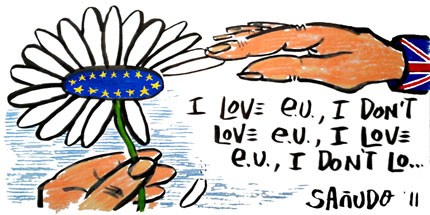Those who backed Remain—a group that includes this newspaper, as well as most MPs—will find little in the deal to make them think they were wrong. Although it legally sets out only a temporary framework, its terms are clearly worse than the status quo. Yet if they are to respect the referendum, MPs should also judge the deal against what voters were promised. The Leave campaign had no formal manifesto, and most of those behind it have since fled the government. But the animating idea was to “take back control”. In some ways the deal does this, notably in immigration, where Britain would reclaim the right to limit migration from Europe. The price of this is being kicked out of the single market, which would hit the economy. MPs must decide whether the government is right that the public accepts this trade-off.

In other ways Britain will unequivocally forfeit control. It will stay aligned with many of the single market’s current and future rules, to keep trade flowing and the Irish border open, something the EU has made a condition of any deal. Once outside the EU, Britain will have no say in setting these rules. European judges will still arbitrate on such matters, even though Britain will no longer be able to nominate them. This is not taking back control but giving it up. Meanwhile, as long as it remains in a customs union Britain will not even get the consolation prize of signing trade deals with other countries, something by which many Brexiteers have come to set enormous (and unwarranted) store.
译文由可可原创,仅供学习交流使用,未经许可请勿转载。












